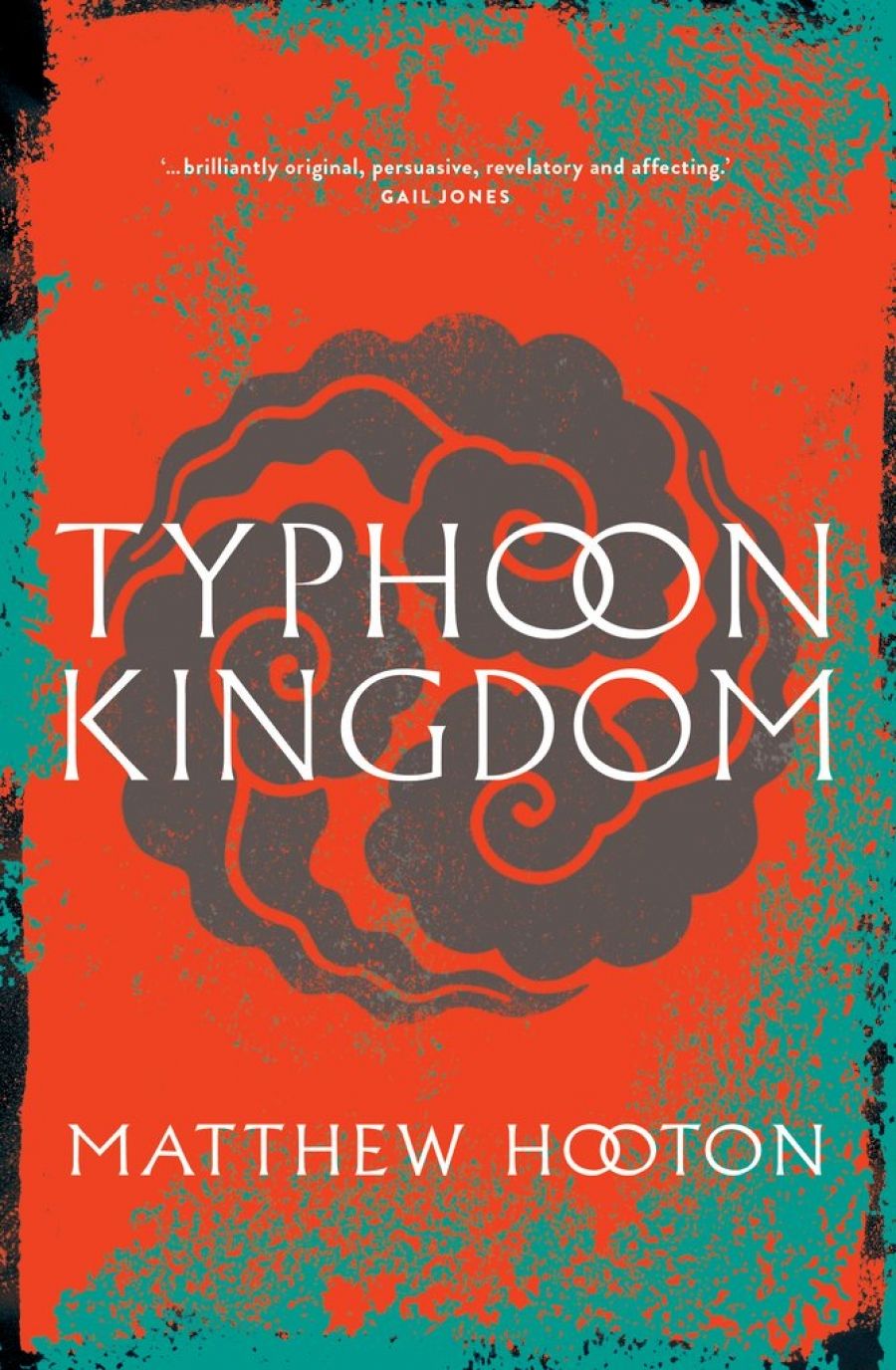
- Free Article: No
- Contents Category: Fiction
- Custom Article Title: Alison Broinowski reviews <em>Typhoon Kingdom</em> by Matthew Hooton
- Review Article: Yes
- Online Only: No
- Custom Highlight Text: In the May 2019 issue of Quadrant, its literary editor, Barry Spurr, inveighed against the ‘inane expansion of creative writing courses’. Professor Spurr’s scholarly accomplishments in the study of poetry and Australian fiction do not include creative writing. (His resignation from the University of Sydney was accepted in December 2014 ...
- Book 1 Title: Typhoon Kingdom
- Book 1 Biblio: UWA Publishing, $29.99 pb, 282 pp, 9781760800307
Less well known is the Dutch connection that occurred in 1627 when a ship’s captain, Jan Jansz. Weltevree, was shipwrecked off Korea. He was kept there for the rest of his life as an adviser to the Joseon court, married a Korean, and they had two children. He acted as translator and interlocutor after twenty-two more shipwrecked Dutch sailors, including Hendrick Hamel, arrived. Survivors from the Sparrowhawk who landed at Jeju Island in 1653 were later taken to Seoul. They were kept there for thirteen years, until seven of them escaped to Nagasaki. An epigraph from Hamel’s Journal and a Description of the Kingdom of Korea, 1653–1666 opens Hooton’s novel, which, without his saying so, is loosely based on Hamel’s experiences.
Two episodes in Korean history, beginning in 1653 and in 1942, revolve and conjoin like yin-yang symbols to construct Hooton’s novel. In the first, van Persie is the only survivor on Jeju, where he is passed to a local shaman who puts him on display in chains along with deformed fish, birds, and animals, for profit. His experiences there, and on the long journey on foot through forests and villages to Seoul, are as traumatic for him as for his guide, Yi Hae-jo, a local fisherman who has never seen the capital, just as most of Seoul’s citizens have never seen a ‘yellow-haired foreigner’. When van Persie meets Weltevree and his six companions from the ship in Seoul, he can scarcely pronounce Dutch words.
Van Persie encounters Korea’s language, culture, and the spirit world that is as true for the Jeju people as their material surroundings. He cherishes the memory of a woman in the fishing village who treated his wounds, while his companion on the journey, Hae-jo, communicates with the Jeju Grandmother spirit about his coming fate at the hands of the king. As they pass deserted villages and a leper colony, Hae-jo reflects that evil is a great shaper of fates, this is true, ‘but it also lives in the hearts of men’.
Four centuries later, in the second episode, also told in the present tense, ‘the General’ – Douglas MacArthur – is in retreat, Korea is under Japanese rule, and ‘comfort women’ are recruited to service Hirohito’s troops. Men like Kim Won-jae from remote villages join the resistance, eventually hearing that two large bombs have hit Japan. They are not sorry, and MacArthur speculates about using atomic bombs on ‘Communists’ everywhere. Then the Korean War begins, over a line arbitrarily drawn by the Americans just north of Seoul. A Korean woman who can treat the sick survives the Japanese brothels, sustained by communicating with her grandmother’s spirit, and carrying from one war to another the memory of a blue-eyed Korean fighter, Won-jae, for whom she searches in the fog of war.
Hooton’s matched tranches of Korean history are leavened with shrewd asides on today’s world. ‘This is true’, the struggling Koreans assure one another, even when they don’t believe their leaders, don’t know what they are fighting for, or what is true. Perhaps, the Korean resisters say, they would be better off with the leader of the north: he at least fought against the Japanese. Are they waiting for death, they ask, on the wrong side of the river? Their Commander tells them the North Korean leader is not a hero but an imposter. Washington tells them the enemy are ‘Commies fighting like savages’, ‘a Mongol horde from the north’, and ‘an evil race hellbent on wiping out freedom’. War without end, thinks MacArthur. This is true. What has changed?
The requirements of studying creative writing for a PhD are different from the challenges other novelists face. Hooton has produced results that are informed by research and experience beyond the usual boundaries. Teaching creative writing gives novelists, dramatists, and poets an income while they pursue their craft. In these straitened times of contested truth, if we do not encourage their work and that of their students, we will not share the benefits of their knowledge and imagination.


Comments powered by CComment